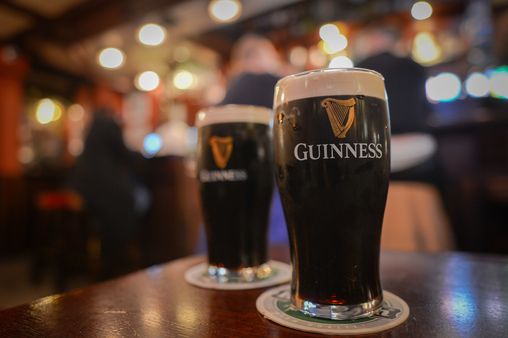Ballymaguire Foods, which makes more than 200 products subject to a food safety recall due to fears over the harmful bacteria Listeria monocytogenes, has appointed a former head of the Food Safety Authority of Ireland (FSAI) to lead its response to the situation.
In a statement, the company said that “as a precautionary measure” all products have been withdrawn, while “clear consumer information” is being provided through its retail partners.
“We suspended all production and have taken corrective actions, including a full pharmaceutical-grade clean-down of the site.
“To further strengthen our response, we have appointed Dr Patrick Wall – former Chief Executive of the Food Safety Authority of Ireland, former Chairperson of the European Food Safety Authority, and former Professor of Public Health at University College Dublin – to lead our dedicated and experienced response team.
“The team has a singular focus: to fully and effectively resolve this matter. It is doing so in close collaboration with the relevant public health authorities,” it added.
Dr Wall and the team are set to oversee all aspects of the review, including implementation of any necessary enhanced procedures.
According to the statement, its remit also includes “evaluating experiences with similar incidents and identifying and replicating best practices from other jurisdictions to inform and strengthen our long-term approach to food safety”.
Ballmaguire Foods said production at the affected facility “will only recommence once the relevant authorities are satisfied”.
The move follows the confirmation yesterday from the FSAI that an adult has died with a confirmed case of listeria infection.
The FSAI said nine confirmed cases of listeria had been identified as of Tuesday.
A National Outbreak Control Team is investigating an extensive outbreak of listeria linked to a precautionary food recall of ready-to-heat meals.
Products from Tesco Finest, The Happy Pear, SuperValu Signature Taste, and Centra Freshly Prepared are among a range of ready meals included in the recall.
The various branded prepared meals and side dishes are produced by Ballymaguire Foods and are sold in most major supermarkets – including Aldi, Centra, SuperValu, and Tesco – and are branded under the names of its customers.
The FSAI also recalled another product due to the possible presence of listeria.
Tesco Finest Creamed Spinach has been added to a list of products produced by Ballymaguire Foods that are being recalled.
The FSAI said all packed sizes of the product are implicated.
Ballymaguire Foods said it is “deeply aware that people have been impacted by consuming its freshly prepared meals. We acknowledge the concern and anxiety that this has caused and are treating it with the utmost seriousness”.
It also said incidents of this nature “are exceptionally rare”.
An adult died with a confirmed case of listeria infection, the FSAI confirmed yesterday.
The FSAI said that it had identified nine confirmed cases of listeria as of Tuesday.
Listeria can enter the food chain from contaminated water, through soil, through animal contact during agricultural practices and can contaminate foods and spread to surfaces.
Following this it can spread through contaminated equipment or the hands of food handlers into the processed environment.
Symptoms of listeria
Симптомы инфекции Listeria monocytogenes могут включать легкие гриппоподобные симптомы или желудочно-кишечные симптомы, такие как тошнота, рвота и диарея.
В редких случаях инфекция может быть более тяжелой, вызывая серьезные осложнения.
Some people are more vulnerable to Listeria monocytogenes infections, including pregnant women, babies, and people with weakened immune systems, including the elderly.
The incubation period (time between initial infection and first symptoms appearing) is on average three weeks but can range between three to 70 days.
Listeria can survive at ‘freezing temperatures’ – food safety expert
Earlier, former CEO of the FSAI said that listeria can survive at “freezing temperatures,” following a precautionary recall notice over ready-to-heat meals after an outbreak of the infection.
Adjunct Professor at UCD Institute of Food and Health Alan Reilly, said listeria monocytogenes is “unique in that it can survive at low temperatures… even freezing temperatures”.
Therefore, he said for the list of foods subject to the recall, “that rely on chilled storage for fairly long periods, listeria monocytogenes would be the number one pathogenic bug that you have to look out for”.
Professor Reilly said listeriosis is a “bacterium,” but some “listeria monocytogenes, they are pathogenic, and they are “probably one of the most serious forms of food-borne illness you can get”.
Speaking on RTÉ’s Today with Philip Boucher Hayes, he said it causes two types of illnesses, a “non-invasive” kind, “you could nearly call it routine food poisoning,” and the other is an “invasive” kind, and this invasive type is “the real killer”.
“You get things like septicemia, blood poisoning, it invades a lot of organs and so on…and meningitis, it can cause spontaneous abortion in pregnant women.
“And that form is the real killer,” he said.
However, he added that there is “not a lot” of listeriosis in the food chain.
In 2024, there were less than one case per 100,000 people in the EU, compared with 46 cases per 100,000 people of campylobacter and 18 cases per 100,000 of salmonellosis, he said.
A lot of work is done to keep listeriosis out of the food chain, Prof Reilly said.
It would “probably ” enter a food processing plant on “raw materials” such as vegetable matter, uncooked meats and “establishes itself” in the food processing environment, such as on a “biofilm” on a conveyor belt, where listeria will survive, he said.
He said one outbreak in Canada some 17 years ago, which generated 55 cases, from which there were 22 fatalities, was tracked down to a meat slicer, which then contaminated deli meats and led to “one of the most serious outbreaks”.
“After that outbreak, in 2008, the world woke up to listeria monocytogenes”, he said.










